The residents described « a mini-tsunami ». A toxic one.
Last Monday, the red mud reservoir of an alumina plant ruptured in Hungary, near Ajka, 165km west of Budapest. As a result, 1.1 million cubic meters of red mud wiped out several villages through waves more than 2 meters high. It flooded 40 square kilometers of land, including affluents of the Danube, then reached one of Europe’s longest river on Thursday morning. So far, 7 people have been killed, 1 is still missing, and more than 150 have been injured, mostly by chemical burns. The death toll is still expected to rise.
As we write these lines, surrounding villages are being evacuated as the structure threatens to break in another point, which would result in another 500 000 cubic meters flooding the area.
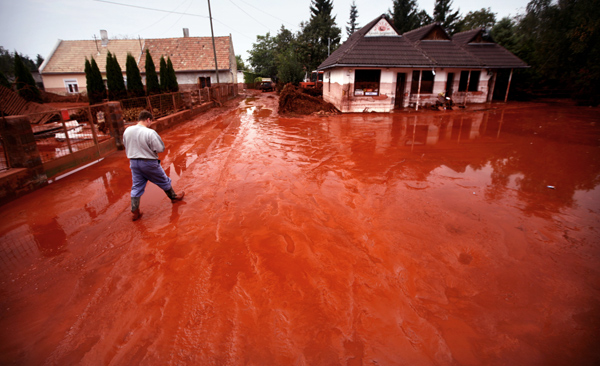 The disastrous chemical accident has been declared Hungary’s largest and most dangerous environmental catastrophe, exceeding by far the 130000 cubic meters of cyanide-tainted water that spilled in 2000 in Baia Mare, Romania. Ten years later, traces of cyanide are still found in the area. It is worth noting that this cyanide was in a liquid form, therefore very quickly carried aways by the river whereas the thick red mud will sit there for years, sipping into the ground and reaching ground waters.
The disastrous chemical accident has been declared Hungary’s largest and most dangerous environmental catastrophe, exceeding by far the 130000 cubic meters of cyanide-tainted water that spilled in 2000 in Baia Mare, Romania. Ten years later, traces of cyanide are still found in the area. It is worth noting that this cyanide was in a liquid form, therefore very quickly carried aways by the river whereas the thick red mud will sit there for years, sipping into the ground and reaching ground waters.
Read More
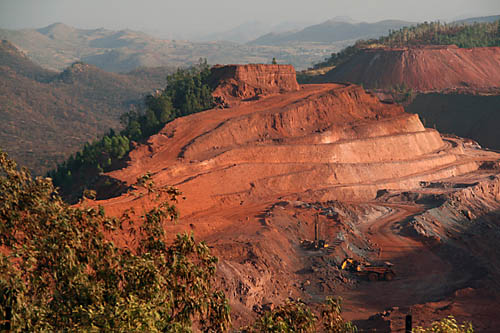 By Samarendra Das & Felix Padel
By Samarendra Das & Felix Padel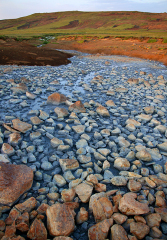



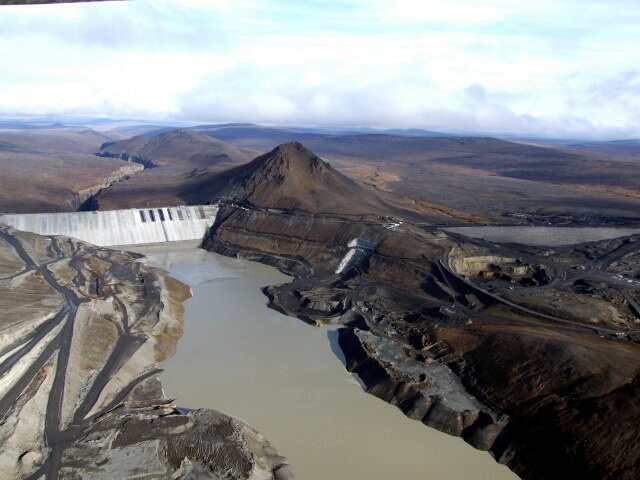 Since 2002, when work began on constructing the Kárahnjúkar dam, which today provides electricity to Alcoa’s aluminum smelter in Reyðarfjörður, until end of the year 2009, 1700 work related injuries have been reported in relation to the dam’s construction. 120 of those injured are still disabled from work, ten of them having irrecoverable injuries – and four workers have died as results of their accidents.
Since 2002, when work began on constructing the Kárahnjúkar dam, which today provides electricity to Alcoa’s aluminum smelter in Reyðarfjörður, until end of the year 2009, 1700 work related injuries have been reported in relation to the dam’s construction. 120 of those injured are still disabled from work, ten of them having irrecoverable injuries – and four workers have died as results of their accidents. It has hardly escaped the attention of anyone living in Iceland of late, that the Canadian geothermal company, Magma Energy, recently bought Geysir Green Energy´s (another geothermal energy company) stock in HS Orka (southwest-peninsula power company), making Magma a majority stockholder with 98,5% partnership. Magma´s purchase of GGE´s stock comes as no surprise whereas it´s been clear from the onset that Magma intended to claim majority ownership over HS Orka.
It has hardly escaped the attention of anyone living in Iceland of late, that the Canadian geothermal company, Magma Energy, recently bought Geysir Green Energy´s (another geothermal energy company) stock in HS Orka (southwest-peninsula power company), making Magma a majority stockholder with 98,5% partnership. Magma´s purchase of GGE´s stock comes as no surprise whereas it´s been clear from the onset that Magma intended to claim majority ownership over HS Orka.
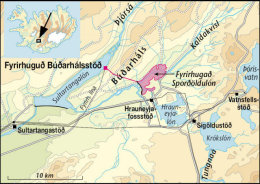 Rio Tinto Alcan (ISAL) has landed all the energy-related deals necessary for the company to start expanding it’s aluminum smelter in Straumsvík. In the middle of June, Landsvirkjun (National Power Company) and Alcan renewed their current deal on energy purchase between the companies. The renewal included an extension on purchase right up until the year 2036, along with an added purchase of 75MW of power, energy Alcan needed to secure to be able to act on their plans on expanding the smelters productional capacity by 40.000 tons a year. This expansion will not exceed the companies current boundaries, thus manouvering around any results from local referandums against the smelters expansion. As mentioned earlier, the expansion also requires these 75MW of power on top of all the energy Alcan is already receiving at bargain prices. But the deal does have some reservations, most prominently a demand that the uncertainity about the taxation of heavy industry in the country be settled before the 31st of August. This is a clear and blatant example of how the power-sector and aluminum lobbyists toy with the countrys government, that has never dared to resist or stand up to this kind of pressure, or blackmails as it is, of financial muscle, so the same should be expected in this case.
Rio Tinto Alcan (ISAL) has landed all the energy-related deals necessary for the company to start expanding it’s aluminum smelter in Straumsvík. In the middle of June, Landsvirkjun (National Power Company) and Alcan renewed their current deal on energy purchase between the companies. The renewal included an extension on purchase right up until the year 2036, along with an added purchase of 75MW of power, energy Alcan needed to secure to be able to act on their plans on expanding the smelters productional capacity by 40.000 tons a year. This expansion will not exceed the companies current boundaries, thus manouvering around any results from local referandums against the smelters expansion. As mentioned earlier, the expansion also requires these 75MW of power on top of all the energy Alcan is already receiving at bargain prices. But the deal does have some reservations, most prominently a demand that the uncertainity about the taxation of heavy industry in the country be settled before the 31st of August. This is a clear and blatant example of how the power-sector and aluminum lobbyists toy with the countrys government, that has never dared to resist or stand up to this kind of pressure, or blackmails as it is, of financial muscle, so the same should be expected in this case.